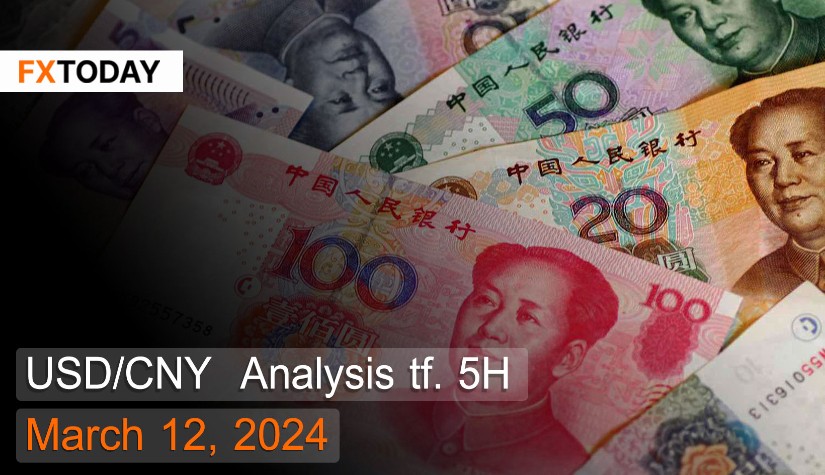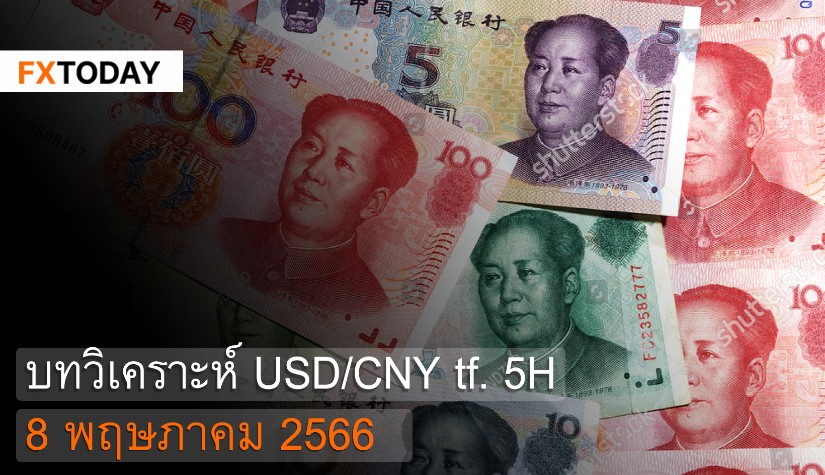China managed to escape deflation for the first time in six months.
The Chinese yuan strengthened, as inflation data indicated that China's economy could survive deflation for the first time in February. The slight increase in inflation and China's fragile economic recovery suggests that analysts predict China could further ease additional policies. Pan Gongsheng, Governor of the People's Bank of China, hinted at the possibility of further policy relaxation.
China's consumer price index rose by 0.7% year-on-year in February, higher than market expectations of 0.3%, marking the first recovery since August last year. This was primarily due to increased spending during the Chinese New Year season, leading to only a slight decrease in food prices while prices of pork and fresh vegetables increased. The core consumer price index increased rapidly by 1.2% from 0.4% for three consecutive months.
China's foreign exchange reserves increased by $6.5 billion to $3.226 trillion, despite the dollar strengthening against other currencies. China continues to buy gold steadily, with reserves increasing from 72.19 million ounces to 72.58 million ounces in January, resulting in an increase in China's gold reserves to $148.64 billion.
The price of new homes in China fell by 0.7% year-on-year in January, despite government support to mitigate the impact of the real estate slowdown. However, the economy's continued fragility and oversupply in certain areas led to a continuous decline in new home prices, the most significant drop since February 2015.
The Chinese government has set a GDP growth target of around 5% for 2024, with a fiscal deficit target of 3%, down from 3.8%. The government aims to increase spending by 4%, while fiscal revenue is expected to increase by 3.3%. This indicates that China may be able to further support the economy by increasing money supply and potentially increasing taxes.
The yield on China's 10-year government bonds remained stable above 2.3% due to the latest inflation data. Additionally, China's GDP growth target of 5% reflects the government's continuous economic support and the possibility of further monetary policy relaxation to boost investor confidence.
Techical analysis data (5H)
Resistance: 7.1765, 7.18, 7.1819
Source: Investing.com
Buy/Long 1: If the price touches support in the price range of 7.1692 - 146.63 but cannot break the support at 146.63, you may set a TP at approximately 7.18 and SL at around 7.1656 or according to your acceptable risk.
Buy/Long 2: If the price breaks the resistance in the price range of 7.1765 - 7.18, you may set a TP at approximately 7.1819 and SL at around 7.1692 or according to your acceptable risk.
Sell/Short 1: If the price touches resistance in the price range of 7.1765 - 7.18 but cannot break the resistance at 7.1765, you may set a TP at approximately 7.1692 and SL at around 7.1819 or according to your acceptable risk.
Sell/Short 2: If the price breaks the support in the price range of 7.1692 - 146.63, you may set a TP at approximately 7.1656 and SL at around 7.18 or according to your acceptable risk.
Pivot point March 12, 2024 07:02 PM. GMT+7
|
Name
|
S3
|
S2
|
S1
|
Pivot Points
|
R1
|
R2
|
R3
|
| Classic | 7.1656 | 7.1692 | 7.171 | 7.1746 | 7.1765 | 7.18 | 7.1819 |
| Fibonacci | 7.1692 | 7.1713 | 7.1725 | 7.1746 | 7.1767 | 7.1779 | 7.18 |
| Camarilla | 7.1713 | 7.1718 | 7.1723 | 7.1746 | 7.1732 | 7.1737 | 7.1742 |
| Woodie's | 7.1646 | 7.1687 | 7.17 | 7.1741 | 7.1755 | 7.1795 | 7.1809 |
| DeMark's | - | - | 7.17 | 7.1741 | 7.1755 | - | - |
















